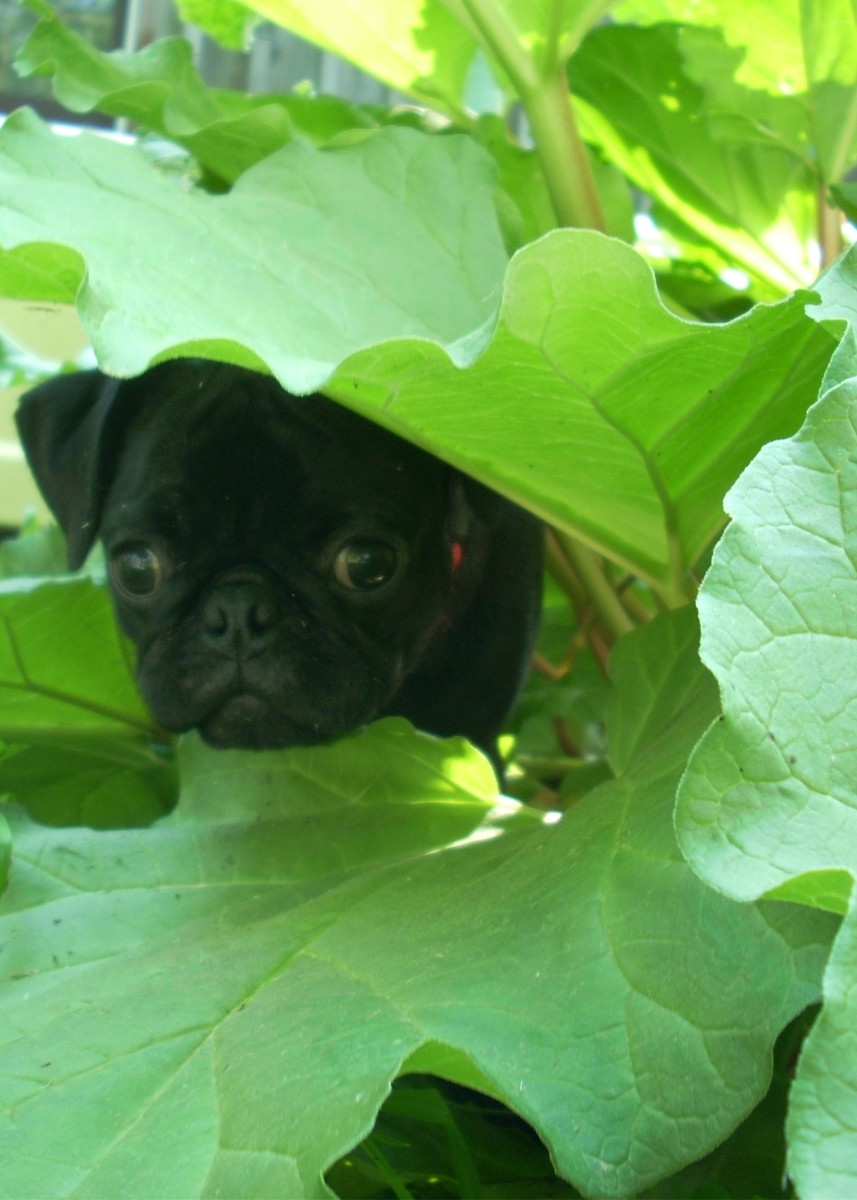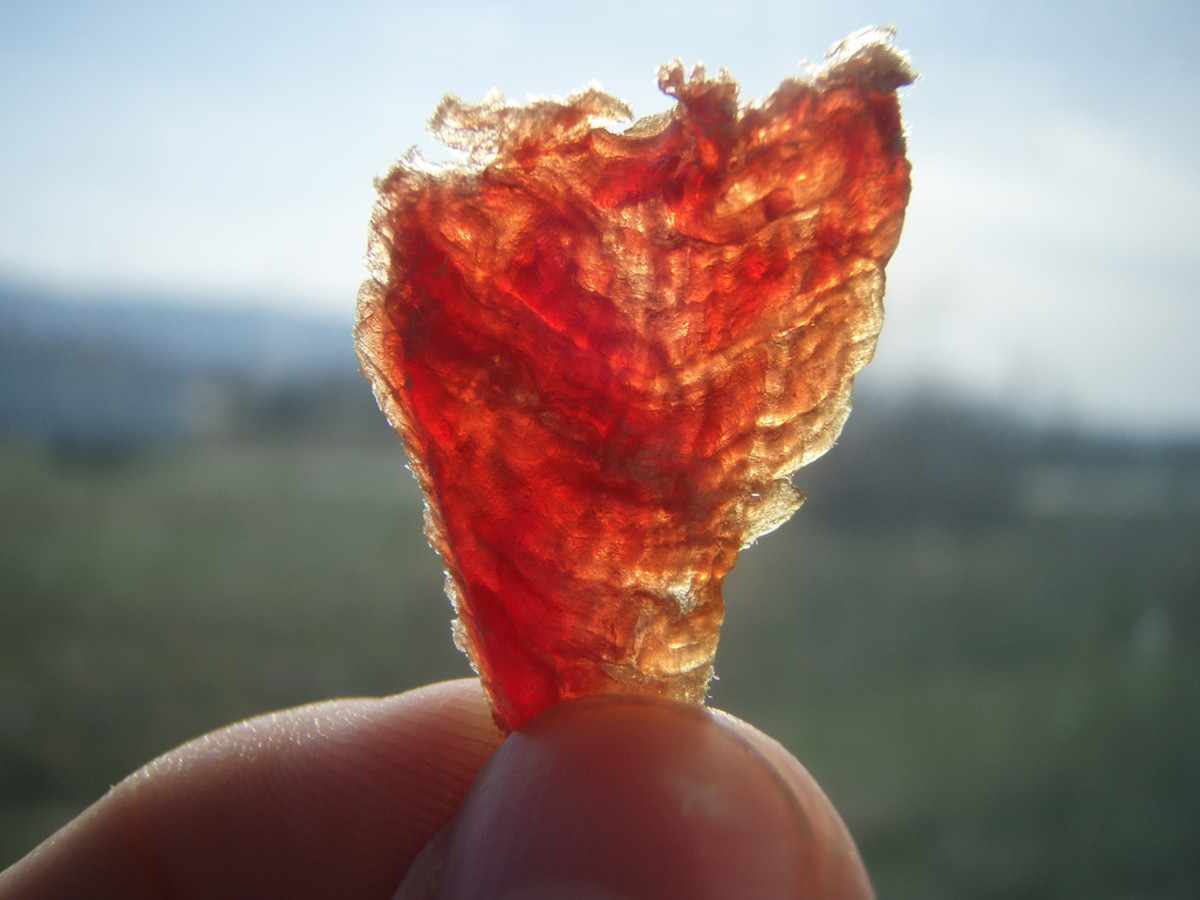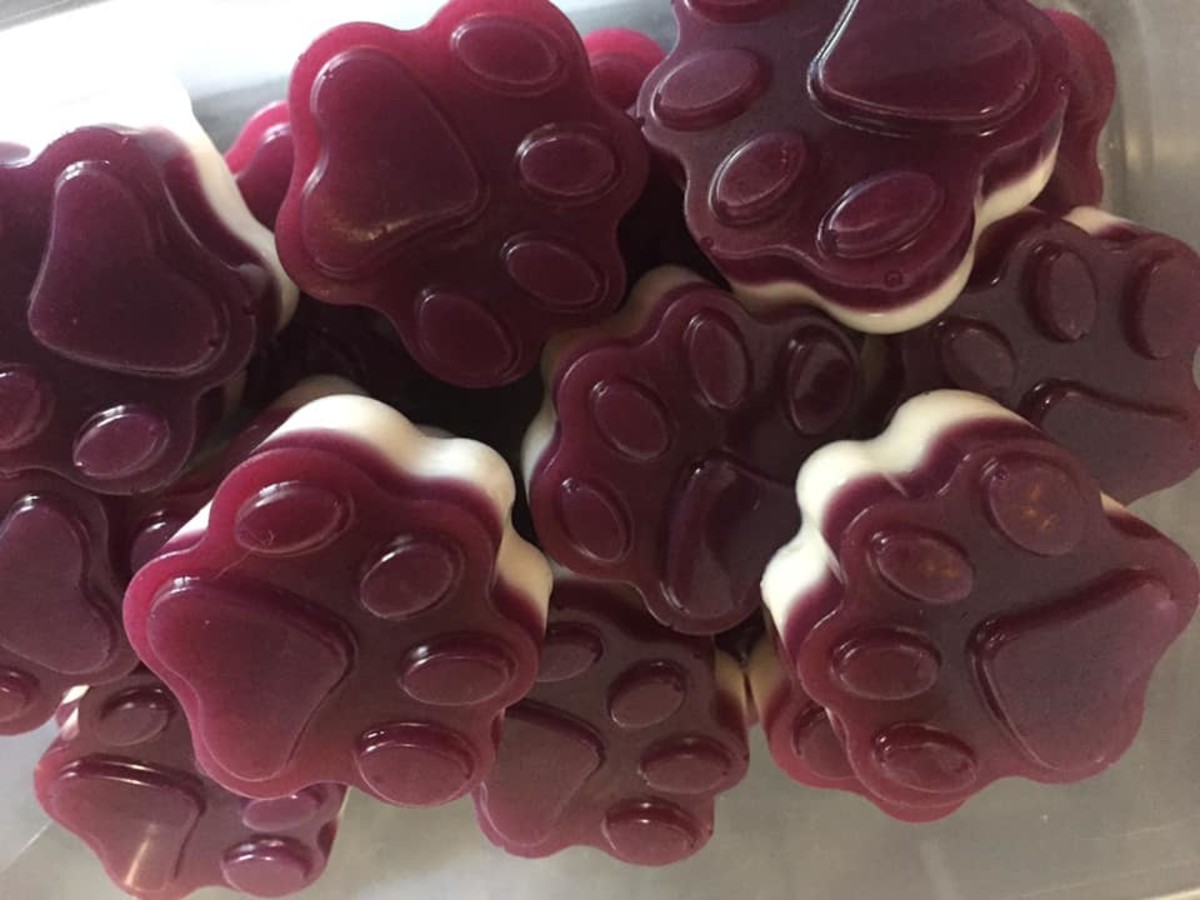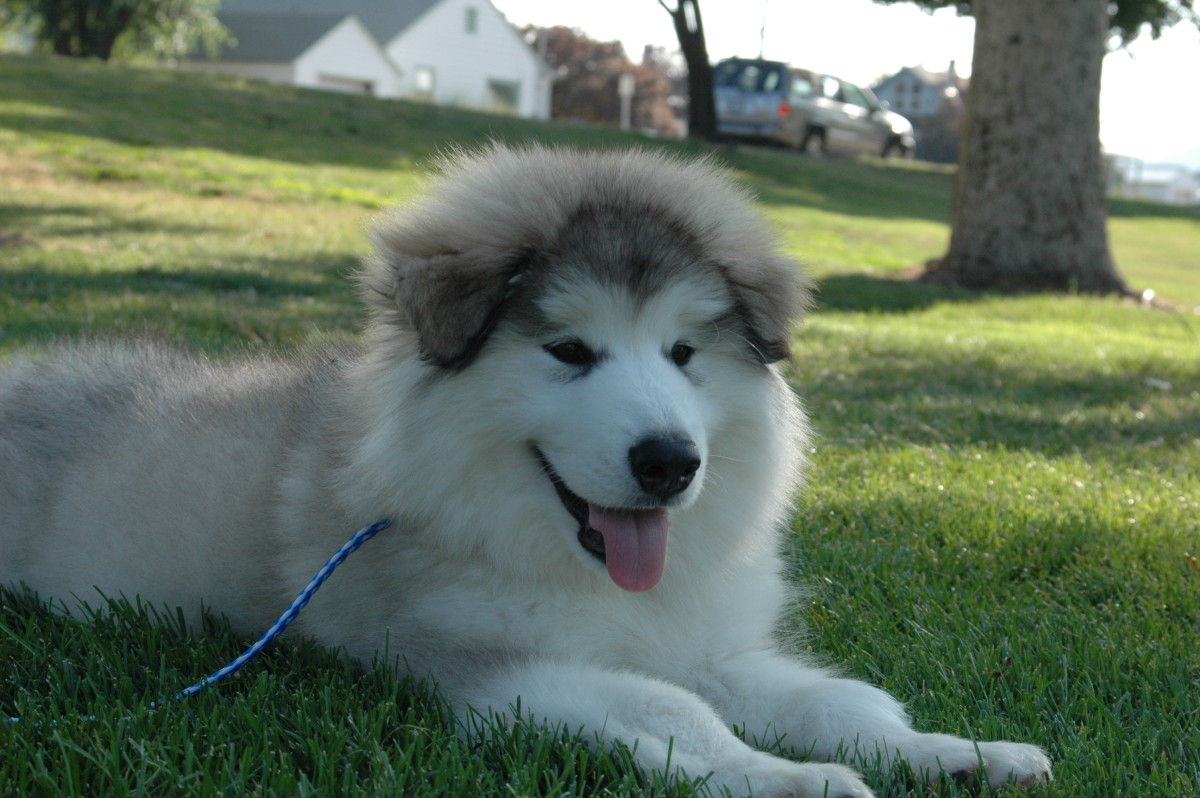- HubPages»
- Pets and Animals»
- Dogs & Dog Breeds»
- Dog Food
BARF or Raw Diet For Dogs!

Why BARF Can Be Good for Your Dog
Although its rather unappealing name may certainly have you thinking otherwise, putting your dog on the BARF diet may be exactly what's required to maximize his or her health and longevity. The BARF diet is formulated to resemble as closely as possible the diets of dogs in the wild, where food is fresh, and often freshly killed.
Why is feeding your dog BARF so important for his or her health? It has to do with the digestive organs which secrete enzymes to break down food so that it's used properly by the body. For instance, when carbohydrates and proteins are eaten at the same time, the protein enzymes start working first. The carbs wait, and while they wait, they ferment and release toxins in the body.
Meats are only to be given at one meal, along with other heavy proteins like eggs or milk. Do not mix this with grains. At the other meal, give the carbs – the fruits and grains, if you choose to use them. Veggies can be given with either grains or proteins. Fruits, except apples, should be fed alone and at least twenty minutes before or after anything else.
Feeding grains at all in a BARF diet is still highly controversial for the same reasons you already read. Dogs are not cows and don't need grains to survive and thrive. That's not to say you can't feed them, it's just to say it's not a good idea as it really does them no good.
Supplements and the BARF Diet
Supplementing the BARF diet may be necessary simply because you are not providing your dog with everything he or she would get by killing and eating fresh game. The biggest thing is to avoid over supplementation.
Since BARFers don't feed the WHOLE animals including eyes, brains, stomach and intestines, adding essential fatty acids like fish oil or flaxseed oil is good. Yogurt also has good bacteria and can be fed as well. Consider kelp now and then for its trace elements and vitamins C and E for their antioxidant properties.
We're not talking about adding these every day as a normal part of the diet, unless there is good and sufficient reason to do so, such as illness or chronic stress. The question then becomes what do you use and why or what is in it that makes it a good supplement for your dog.
In general, vitamins and minerals at the right levels promote the health of your dog. They help boost their stamina, help with fertility, increase their disease resistance, and promote a longer life. Not a bad list of recommendations, is it? This is pretty much in a nutshell what we would all like for our dogs.
A properly formulated BARF diet will contain a wealth of vitamins and minerals, delivered in the right form for your dog, and honestly, they shouldn't need a supplement.
However, having said that, there are many factors in the food chain that you can't really control – e.g. food grown on poor quality soils, harvested before ripening and transported long distances, food left on the shelf longer that it should be, etc. These factors may lower levels of vitamins and minerals in the food you are feeding.
Also, since BARF is so individual in nature, you may have a dog that is older or younger or has a special need for extra supplements in the form of vitamins or minerals. If you are going to supplement, most BARFers recommend you use organic supplements whenever you can for optimal quality and nutrition.
Feeding the BARF diet is not for every dog owner, and eating the BARF diet is not for every dog. The important thing is that you keep mealtime enjoyable for your pet, while at the same time keeping the food bowl full of all the nutrients your pet needs to remain healthy and active. If you have questions about specific supplements for you dog, speak to your veterinarian.
5 Reasons To Feed Raw
Making a Raw Food Meal
Nutritional Supplements For Your Dog?
Health-conscious humans, and there are billions of us, are always on the look out for nutritional supplements which will improve our physical well-being and mental outlook. And concerned dog owners are always on the lookout for nutritional supplements which will keep their canine companions as happy and healthy as possible throughout their lives feeding healthy dog food.
If you are wondering whether your pet will benefit from some nutritional supplements, talk to your vet instead of prescribing them on our own, because most healthy dogs will not need supplements. Dogs with specialized needs, however, and owners using the BARF diet for their dogs, may prefer that extra boost that supplements can provide.
A popular supplement can be found in garlic powder. Garlic contains organic allyl sulfur components - S-allyl cysteine and other cysteine derivatives like S-alkyl cysteine sulfoxides. These components are responsible for many of its anticancer, antibiotic, anti-lipid and anti-diabetic properties. Pretty powerful stuff, isn't it?
Those who advocate giving garlic to dogs point to garlic protecting against cancer, enhancing immunity and reducing the formation of athero-sclerotic plaques and thrombi. It has even been found to be beneficial in reducing cholesterol levels, and lower blood sugar levels. Raw garlic is antibacterial and anti-fungal. This action, however, is lost when garlic is cooked or dried. TIP: Dry ginger is also a good anti-inflammatory. Together with garlic, dry ginger can replace the need for aspirin-like (NSAID) drugs.
When choosing to feed your dog any human food or supplements such as garlic, you must consult your veterinarian. There are two sides to every coin and garlic clove. Keep this in mind if you choose to use it to supplement your dog’s diet.
A few more ways raw unprocessed but pasteurized garlic supposedly helps your dog are for skin boils and other bacterial infections. Crush a bulb of garlic and extract the juice. Apply it on the infected areas. Wound healing with take place within a week.
Using a raw, unprocessed (not preserved in any way) clove of garlic, mash it well and add it to your pet's food daily. Large dog – ½ a clove. Small dog – ¼ clove. This helps prevent cancer, tone the circulation, and purify the blood.
This helps keep dogs from having worms and gets rid of them if he or she already has them. It keeps fleas and ticks off dogs because neither bug likes the smell of garlic. This actually works for horses to keep stable flies and other gnats away. Your dog doesn't smell like garlic to a human, by the way.
The easiest way to give garlic is by liquid. Either spray or pour it on the food, and mix well. The researched recommended daily dose seems to be:
● 5-20 lb. dogs - 4 sprays or 1/4 ounce in food daily.
● 21-50 lb. dogs - 6 sprays into food and mix well.
● 51 lbs. and over dogs 8 sprays into food and mix well.
Now, if you think the doses are too high, then opt to do what many breeders, vets and animal lovers do: feed the dog. In other words, just give them what they seem to tolerate. Actually, it would be best for you to just start off slowly with smaller amounts if this is what you would like to try for your dog.
Because garlic belongs to the same plant family as onions, and onions are known to cause deadly hemolytic anemia in dogs, some vets are now recommending that no dogs should be given garlic in any form. But the amounts of thiosulphate (the anemia causing ingredient in onions) found in garlic are so small that you would have to be feeding your dog two large cloves each day for an extended period to risk harm.
Garlic is a readily available, inexpensive supplement which can be used to benefit your dog in a number of ways. Still, you know your pet better than anyone else, you want to feed healthy dog food and you are the one who will be watching to see if supplementing with garlic seems to be helping or harming your pet!
Raw Dog Food Recipe For Pregnant Dogs
If you own a female dog, giving them a proper and balanced diet is very important. This should be given special attention if you plan on breeding your dog or having puppies in the future. If you have plans of breeding, you should start your dog on raw dog food recipes well before introducing her to a male. Feeding your female dog with raw dog food recipes before pregnancy prepares her body for the pregnancy and it also makes her accustomed to the raw food. Having your dog on the right diet with a good amount of exercise will ensure that she is as healthy as possible, which means she is more likely to have an easy and good pregnancy.
You should try not to switch your dog's diet to raw food when she is already pregnant because the difference in the food can affect her digestion (making her vomit of giving her diarrhea), which in turn can affect the growing whelps. Since regular pregnancies for dogs can already include nausea, vomiting, and anorexia during the first to third week, switching diets during pregnancy can lead to unnecessary complications. This is why your dog needs to be very healthy before the pregnancy so that when a situation like this occurs, her body will be able to cope with the problem and still be able to provide nutrition for the whelps.
During the fourth week, your dog may begin to fast or refuse to eat. Though it is natural for you to worry, know that your dog knows what her body needs. In the case of fasting, follow this raw dog food recipe:
1 cup goat's milk
1 tsp raw unprocessed honey
½ cup yogurt
1 banana (chopped & skin included)
The above milk meal should provide your fasting dog with enough nutrients during her fasting period. Also be sure to give her a lot of clean water so that she keeps herself well hydrated. Milk is given because a pregnant dog needs to be given a lot of calcium, which is the building block of the bones and teeth of the whelps. The increase in calcium will also replenish the amounts the dog is losing as her whelps grow. When not on a milk meal, provide your dog with a lot of raw meaty bones to chew on as these are filled with calcium.
Around the fifth or sixth week of gestation, your dog's appetite should increase. You can try to feed her 'on-demand' or every time she is hungry. Owners who are concerned about over-feeding can follow a gradual process of increasing meals so as to ensure that your dog is getting enough to eat for both herself and the whelps, but will not gain too much weight in the process.
When your dog is pregnant, you also have to consider how vitamins can affect the growing whelps and its relation to birth defects, the problem of eclampsia, and methods of avoiding overfeeding. To learn all these details as well as more raw dog food recipes, grab a copy of 'Going Rawr! Dog Lovers Compedium,' the great ebook which teaches dog lovers how to care for dogs on a raw feeding diet.
When your dog is pregnant, you also have to consider how vitamins can affect the growing whelps and its relation to birth defects, the problem of eclampsia, and methods of avoiding overfeeding. To learn all these details as well as more raw dog food recipes, grab a copy of Going Rawr Dog Lovers Compendium the great ebook which teaches dog lovers how to care for dogs on a raw feeding diet.





